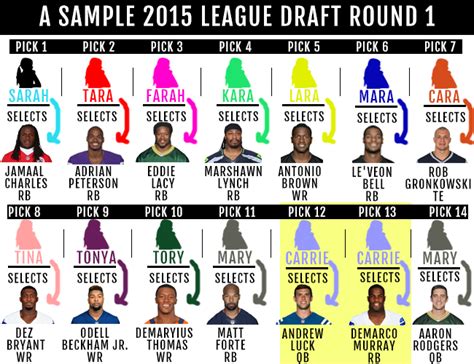How To Play Fantasy Football: A Beginner's Guide to Dominating Your League
Fantasy football has exploded in popularity, transforming from a niche hobby to a mainstream phenomenon. But if you're new to the game, the rules and strategies can seem daunting. This comprehensive guide will walk you through everything you need to know to start playing and, more importantly, winning your fantasy football league.
What is Fantasy Football?
Fantasy football is a game where you draft a team of real-life NFL players and compete against other teams based on their on-field performance each week. You'll score points based on your players' statistics (passing yards, rushing touchdowns, receptions, etc.), and the team with the most points at the end of the season (or week, depending on your league's settings) wins. It's a blend of strategy, luck, and a healthy dose of NFL knowledge.
Setting Up Your Fantasy Football Team
Before you can start competing, you need to join a league. This can be done through various platforms, many of which offer free options. Once you've joined, the key steps are:
1. The Draft: Selecting Your Players
The draft is the heart of fantasy football. You'll select players from a pool of available NFL players, aiming to build a balanced team with a strong mix of proven stars and promising sleepers. Understanding player rankings and projections is crucial here. Consider:
- Positional Needs: You'll need a quarterback, running backs, wide receivers, a tight end, and a kicker (and sometimes a defense).
- Value vs. Risk: High-profile players carry higher expectations, but also higher risk of injury.
- Draft Strategy: There are different drafting strategies (snake draft, auction draft), each with its own advantages and disadvantages.
2. Understanding Scoring Systems
Different leagues use different scoring systems. Familiarize yourself with your league's specific rules to understand how points are awarded for various player statistics. Common scoring categories include:
- Passing Yards: Points awarded per yard passed.
- Passing Touchdowns: Points awarded per touchdown pass.
- Rushing Yards: Points awarded per yard rushed.
- Rushing Touchdowns: Points awarded per rushing touchdown.
- Receptions: Points awarded per reception.
- Receiving Yards: Points awarded per receiving yard.
- Receiving Touchdowns: Points awarded per receiving touchdown.
- Interceptions (for defenses): Points awarded for interceptions.
- Sack (for defenses): Points awarded for sacks.
3. Managing Your Roster
Throughout the season, you'll need to manage your roster. This involves:
- Adding and Dropping Players: Based on player performance and injuries, you'll need to make adjustments to your lineup.
- Waiver Wire Claims: Many leagues utilize a waiver wire system, allowing you to claim players dropped by other teams.
- Trades: Negotiating trades with other team owners can significantly improve your team's potential.
Winning Your Fantasy Football League
While luck plays a part, strategic decision-making is crucial for success. Consider these factors:
Research and Preparation:
- Stay Updated on NFL News: Injuries, player performances, and team news directly impact your fantasy team.
- Utilize Fantasy Football Resources: Websites and apps offer player rankings, projections, and analysis tools.
- Understand Player Value: Learn to identify undervalued players who can significantly contribute to your team's success.
Strategic Gameplay:
- Roster Management: Actively manage your roster throughout the season, adapting to changing circumstances.
- Waiver Wire Strategy: Use the waiver wire effectively to pick up valuable players released by other teams.
- Smart Trading: Don't be afraid to negotiate trades to improve your team's weaknesses.
Beyond the Basics: Advanced Fantasy Football Strategies
Once you're comfortable with the fundamentals, consider exploring more advanced strategies like:
- Analyzing Player Matchups: Consider the opponent's defense when setting your lineup.
- Utilizing Points Against (PA): Focus on consistently scoring points rather than relying solely on minimizing your opponents' points.
- Developing a Long-Term Strategy: Consider building a team for the long haul rather than solely focusing on short-term gains.
Fantasy football is a fun and engaging game that combines your knowledge of the NFL with strategic decision-making. By following these tips and continuously learning and adapting, you'll be well on your way to dominating your league and experiencing the thrill of victory!
